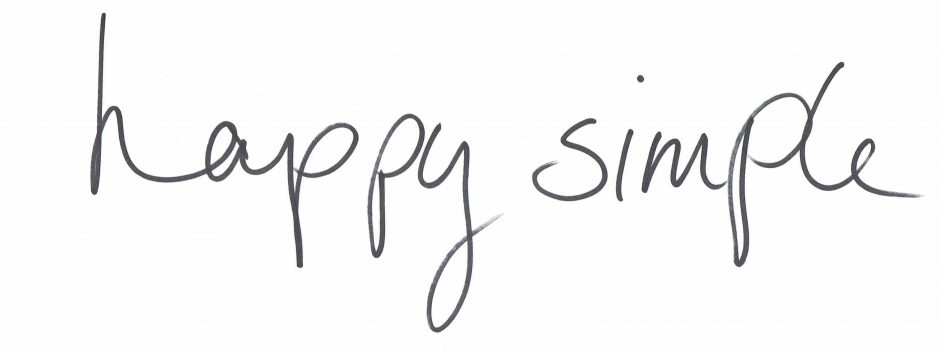
The other day, I started to read yet another article about how much a good gratitude practice can help you when you’re down. I gave up in disgust, because at what point does gratitude, or, really, #Gratitude become yet another form of victim-blaming?
We tell people to practice gratitude to overcome depression. Or to fix their infertility. Or when they’re poor and oppressed and suffering from a chronic disease.
Certainly, practicing gratitude can make you feel a little better when you’re in those situations. I am grateful for all the good things in my life. Sometimes I make lists of them. Sometimes I meditate. I have nothing against practicing gratitude.
But do we ever tell the wealthy to practice it? The privileged? The healthy? No we don’t. Even though it would make them 37% less entitled (OK, I made that up. But someone should do a study.).
#Gratitude is what we foist on the downtrodden, or what we suffering masses foist on ourselves, and after you’ve read a few hundred articles on it, it wears thin.
I believe in being grateful. I know I have a lot to be grateful for and I regularly call my blessings to mind.
But I am not and will never be grateful for my pain. I will never thank the bullies in my life, and Inflammatory Arthritis, like depression, infertility, and poverty, is a total bully.
Yes, gratitude is a good practice. But we’re telling the wrong people to practice it.
Gratitude is a great thing, but the practice of it takes strength, and when you’re contending with bad health or wondering how you’re going to feed your kids, you don’t have any strength to spare.
Plus, even if it works in 53% of cases, that leaves 47% of people on whom it has no effect at all. Telling them to try it is like every other piece of advice that gets thrown at you when you’re going through some stuff. Just because it worked for that neighbor of the person you worked with a while back, doesn’t mean it will work for me.
Some people need medicine; some need talk therapy. The fact that Cognitive Behavioural Therapy finally helped me manage life-long depression gives me no right to tell you to try it. It worked for me. You are not me.
The advice we give others it so often wrong or a bad fit. So it’s not that we should stop telling the downtrodden to practice #Gratitude. We should stop telling them what to do, period.
If you know someone who’s in a bad situation and you want to help them, don’t tell them what to do. Reach out to them. Ask them what they need. Check in with them regularly.
It’s not up to them to take your advice. If they’re living with depression or poverty or chronic pain, they’re already doing everything they can. It may not look like it to you, with your good health and boundless energy, but believe me. They are.
But maybe they haven’t tried this, you think.
But here’s what happens when you give advice. Even when I know the person has no idea what they’re talking about, there’s always a small part of me that wonders if maybe they might be right.
Maybe I haven’t been giving #Gratitude enough of a chance I think. Maybe I just haven’t listed enough things or felt #grateful enough. Maybe the way I’m feeling is my fault.
Advice is such a waste of energy. Usually unwanted, but then you always feel like you need to sift through it, consider it, and even if you’re consciously disregarding it, it’s there in the background, rustling, and huffing, disapproving your every move. You know that the next time you see the person who gave you the advice, it will be there, between you.
And if you don’t get to where you want to go, well, “You should have taken my advice!” even though that advice wouldn’t have gotten you there either.
Giving advice is a way of distancing ourselves from someone else’s pain. We offer up a quick fix and, hey, presto! The problem’s solved, and I didn’t have to feel your sorrow or frustration or fear.
We need to stop. We need to learn to sit with the unfixable, to witness someone’s pain without judging them for it. We need to trust that even those who let bad things happen to them are smart enough and strong enough to know what they need to do to survive, even if they can’t fix it.
We need to learn that some things can’t be fixed.
And if we could all do more of that, I would be so grateful.
Photo by Freshh Connection on Unsplash

I’ve launched a newsletter. It will go out twice a month and include links to my blog posts as well as highlights of my Medium articles. If this sounds interesting to you, you can sign up using the handy form below.





Really spot on Barb. When Randy’s leg was amputated in June EVERYBODY put their oars in the water about how we should change our living situation and how we should be grateful that he lived. And I noticed that all the advice was a justification of their own choices. I am going to be more careful of firing off my own “wisdom” in the future. Thanks for the reminder. Hope you are having more good days than bad.
Penny
Thank you for this thoughtful article. I found it interesting that we rarely give advice to wealthier people, as I had not considered that before. Telling someone how grateful they should be, seems cold and manipulative. The warmer response would be open discussion, or maybe no discussion at all, simply understanding the situation and being there for someone, is often enough. Although, I don’t feel those who are quick to ‘advise’ are particularly warm to begin with. Peace be with you.
Very true, Blake. Thank you.
I have read this about 10 times because it relates so closely to what I have experienced. Plus, it’s really hard to find anything that pushes back against this poisonous gratitude movement. I was adopted by an abusive and neglectful set of parents and forced to express gratitude for the crumbs they threw my way. Society also has an expectation of gratitude (from me but never them) because they gave me a home, albeit a pretty awful one. I am almost 60 and I have been really processing and pushing back against this. It really came to the forefront when I was hired and my abusive and bullying supervisor made us practice gratitude at the beginning of every meeting. The reason was she gave was “science” and that it improved our mental state and outlook, but it was gratitude plus power and a way to have some of us “kiss her ass” and feed her narcissism. I think it also removed a chance to recognize our horrible working conditions. It wasn’t that she was verbally abusive and having us work through our lunches without warning, it was that we simply were not grateful and our way of thinking was flawed. Gratitude wasn’t solving anything, and it was our fault because we didn’t try hard enough. The combination of her verbal abuse and belittling plus our forced gratitude was unbearable. She was promoted and now is second in charge of my organization which is mind-blowing to me, but it removed her from my immediate world, the peon that I am, and for that I am truly grateful!
I’m so sorry that your childhood was so hard. You deserved better parents. Your boss sounds vile. I’m glad you’re not in daily contact with her anymore!
Thank you for your comment. It’s such an honour to know my words have touched someone.
Late to the party here four years later, but I agree with every word. Foisting gratitude on the downtrodden is a subcategory of our society’s toxic positivity, which I abhor. “Your dog just died? Shame on you for grieving — you should be happy for his life!”
“You want to move but just cannot come up with the money? You’re obviously not being grateful enough!”
One of the oldies but goodies I hear often is “Don’t tell me about your problems. There are other people much worse off than you!”
After my sister told me this, I asked, “So would you tell someone who just lost their legs to be grateful they still have their arms?” And she launched into a whole spiel about how people with no legs have done amazing things and then went on and on about Victor Frankl and how we should be grateful even in concentration camps. (“Well, not me. But YOU should be happy.”) You’re right: it’s never the wealthy who think they need advice, only the poor.
For many people practicing too much gratitude makes them a door mat. “I won’t mention this pipe that leaks and the fact that my front door doesn’t close properly or my electricity is dangerous to my landlord. I’ll just be grateful I have a roof over my head.”
I’m so sick of all this New Age claptrap that teaches people to push real emotions down and pretend, pretend, pretend. I’m sick of being told to try meditation, antidepressants, and positive affirmations. I just want sympathy and maybe some money so life isn’t so hard every damn day. I’m plenty grateful, but you can only spread it so far.